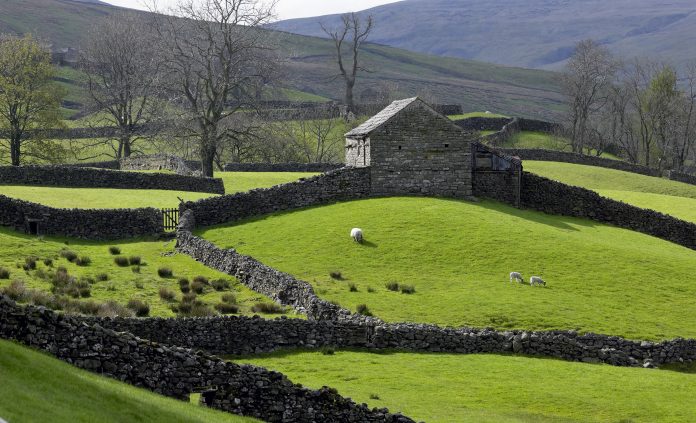Professor Jeremy Phillipson, Director of the National Innovation Centre for Rural Enterprise and Paddy Bradley, CEO of Swindon and Wiltshire LEP explain their thoughts on unlocking the contribution of rural enterprise and “levelling up”
Over many decades, rural economies and their diverse sources of enterprise have been overlooked within mainstream policies – whether it be debates about national productivity, industrial strategy, society’s response to long term grand challenges or the ‘levelling up’ agenda. Either treated too narrowly, so associated only with sectors like agriculture, tourism and traditional industries or eclipsed by approaches seen through the lens of cities as the presumed locus for growth, innovation and regional development, rural enterprise has been underexplored and underutilised.
Why an enterprising countryside matters for levelling up
Drawing rural economies comprehensively into the nation’s plans for recovery and strengthening economic performance is important for several reasons:
- Their significance – In England alone, a GDP of over £260 billion, representing over half a million enterprises and 3.5 million employees across all industries and sectors.
- Untapped potential – Evidence suggests substantial latent opportunity, such as for exporting, innovation in goods or services, or entry to new markets.
- The contribution of rural areas to the nation’s natural resources, green space and health and to underpinning urban and regional performance and resilience.
- Their potential as test beds for innovation – Rural areas can play a key role in pioneering more creative responses to ageing populations, harnessing mobility and digitalisation for goods, services and people, and realising the value of natural capital for clean growth.
- The rural productivity gap – According to Government data, rural productivity is currently 85% that of urban (excluding London), with the productivity gap growing.
- The economic and social impacts of COVID-19 – Over 1.6 million jobs in rural areas have been furloughed and many rural places dependent on visitor economies have been especially hard hit. However, suitably enabled, rural areas are also set to be at the vanguard of accelerated preferences for remote working and living, as businesses and employees realise that in many instances they can work remotely away from the crowds.

Part of the levelling up challenge and solution
Rural economies are, therefore, part of the levelling-up challenge and also part of the solution. This means capitalising on the performance, innovation and untapped potential of rural enterprise, whilst also addressing longstanding barriers. A preponderance of highly dispersed sole traders and micro-businesses presents particular difficulties for coping with regulations/red tape, business collaboration and networking, access to skilled labour, services and finance, and in more remote areas, ‘new to the market’ innovation. COVID-19 has demonstrated how digital connectivity and competencies matter more than ever. Yet many SMEs with goods and services suitable for sale via the Internet and social media don’t have the setup or knowhow to fully exploit this potential. Weaknesses in some rural areas in affordable housing, transport infrastructures and education plus services provision also hold back businesses and require integrated, place-based solutions.
An inclusive approach to levelling up
Greater emphasis is needed to ensure the rural reach of enterprise support services, investments and programmes set to influence the drivers of productivity and encourage ‘levelling up’.
Revisiting the emphasis on city-focused growth policies, local industrial strategies and area growth deals could enable a more inclusive approach. With evidence showing that rural and urban firms in the Northern Powerhouse and Midlands Engine regions register similar levels of performance, it follows that approaches for levelling up should recognise and support the contribution of rural enterprise and account for the interdependencies between cities, towns and rural areas.
How will the National Innovation Centre for Rural Enterprise help?
With funding from Research England, the National Innovation Centre for Rural Enterprise will strengthen the evidence and actions for enhanced performance, innovation and support for rural enterprises, and recognition of their contributions to places and policies.
NICRE’s founding research partners are Newcastle University’s Centre for Rural Economy and Business School, the Enterprise Research Centre at Warwick, and the Countryside and Community Research Institute at the University of Gloucestershire and Royal Agricultural University. The centre works closely with rural communities and businesses, and its sister National Innovation Centres for Ageing and Data, and host of nationwide policy, business and third sector partners, that strengthen NICRE’s reach to small businesses.
Among the many partners with whom NICRE is planning activities, are four Local Enterprise Partnerships – North East LEP, Swindon & Wiltshire LEP, GFirst and Coventry and Warwickshire LEP – all keen to explore ways in which they and the national network of LEPs can fully embrace rural enterprise within their local industrial strategies and evidence base.
NICRE is structured around three workstreams. The first is focused on research and analysis to provide evidence of rural businesses performance and opportunities. Early priorities include, for example: access to and use of external finance, business support, international trade, and digital connections, as well as improved profile and understanding of high growth rural businesses and innovation in rural firms, together with rural enterprise contributions to policy agendas such as Net Zero and Levelling up.
The second stream is focused on developing innovative solutions to place- or business-based challenges, and sharing these approaches across more locations and enterprises. For example, these may be based around improving mobility and connectivity, developing short supply chains, or adoption of agri- and rural-tech or data-based solutions. Innovation projects involve activities where NICRE is partnering many local organisations to work with and build on the innovation capability of rural firms and communities.
Whilst NICRE’s partners and supporters ensure that our work is derived from, relevant and communicated to, businesses and their representative, support and policy communities, the third workstream strengthens these connections. We will operate a Rural Enterprise Forum for these communities, employ Business Champions for some key sectors or themes, and build active and collaborative relations nationally to locally.
*Please note: This is a commercial profile











